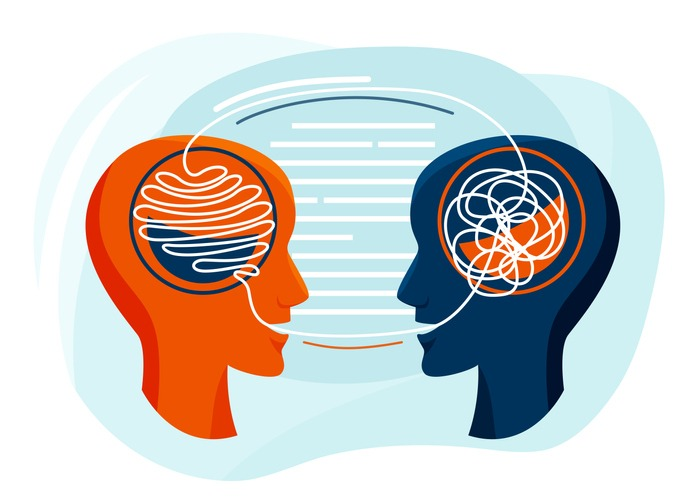My Experience of Cognitive Behaviour Therapy (CBT)
As discussed last week, this week I wanted to share my experience of Cognitive Behaviour Therapy (CBT). I had heard a lot about CBT over the years and especially recently as my sister has just finished her course to undertake CBT with her clients. Personally, it wasn't something I particularly wanted to do and therefore I think that affected my ability to implement the practices.
Each week began with the counsellor summarising last week's findings, ensuring the situation was still accurate and explaining the focus for the session. Now, this should have taken a few minutes max, but I felt like sometimes it took up half the time and was very repetitive.
My first session really focussed on the situation that caused my depression, going through my mental health journey and the current treatments, as well as what I hoped to get out of the service. At the end he summarised the situation and I actually really loved the way it was phrased: "My main problem is feeling depressed most evenings. I feel emotionally exhausted and drained. I have thoughts of being lonely, as well as ruminating on past events. I never had a sense of closure for these. Due to these thoughts, I struggle to concentrate on activities. As a consequence of the problem, I feel sad most days, lack motivation and have no energy." The goal was to feel happier in solitude, by changing my relationships with my own thoughts and get my independence back.
NB: This was the summary made back in July and so I do now feel this is no longer accurate which is a huge achievement in itself!
The next three sessions focussed on cognitive restructuring, described to me as an evidence based intervention for the treatment of depression or anxiety, recommended by NICE. It was split into three steps, with each week building upon the last.
Cognitive Restructuring challenges unhelpful thoughts which impact on emotions. By identifying these and then analysing evidence to the accuracy of the thought, this helps to develop a more realistic and helpful thought process. Once a negative thought is formed, often it causes a cycle which causes a downhill spiral and for the majority of this year, that's exactly what's happened anytime I have time to think.
I was sent a worksheet which really put into perspective some unhelpful thinking styles or habits. The main ones I found myself focussing on is "critical self" which resulted in blaming myself for anything and everything and "memories" where even the smallest thing could trigger a memory which then led me constantly to the same dark place. The worksheet can be found here and I would defintely recommend having a look into it because it really does recognise the things we often do to ourselves, but always tell others not to do.
So the second week, focussed on identifying these thoughts, recognising them and assessing the percentage of belief in them. I was given "homework" to create a thought diary. Over the course of the week, I had to write down every negative thought I had, noting the date and time of the thought. I then had to write down the percentage I believed it. I found when I was writing it up - as I was making notes on my phone contemporaneously - and was out of that mood, I actually believed the thought less, so I also added a column for that percentage so that there was a visual difference in the reality. My thoughts focussed on my own self-esteem about my weight and looks, alongside the lack of relationship, ex-partner, regret and loneliness.
The next week was about challenging those thoughts. In the session, we selected one of the strongest thoughts and then wrote down reasons for and against the comment. This aimed to debate how true it was and whether it was a realistic thought or helpful. The main thing with this was that he didn't want emotional comments, but simply facts for and against.
The last week was more so a half-energised week as by this point it became clear to him that I would benefit from counselling as whilst CBT is good for reframing thoughts, it doesn't help with coming to terms with grief or closure. We discussed very briefly that the final step was to use this analysis to then reframe the thought. Instead of the original, the new thought she would balanced and therefore changes the intensity of the emotion.
At the start of the CBT course, it was made clear that "homework" was important. Whilst the techniques were taught and discussed, implementing regularly enabled it to be automatic practice. It is understood that at first, emotions will only reduce slightly, but over time it should become more manageable. As the course was ending, I didn't fully immerse myself into this thinking, but I have found that occasionally when I do now get into that grief cycle, taking a step back and realising the cascade can help me put a stop to it early on, which is obviously helpful.

Comments
Post a Comment